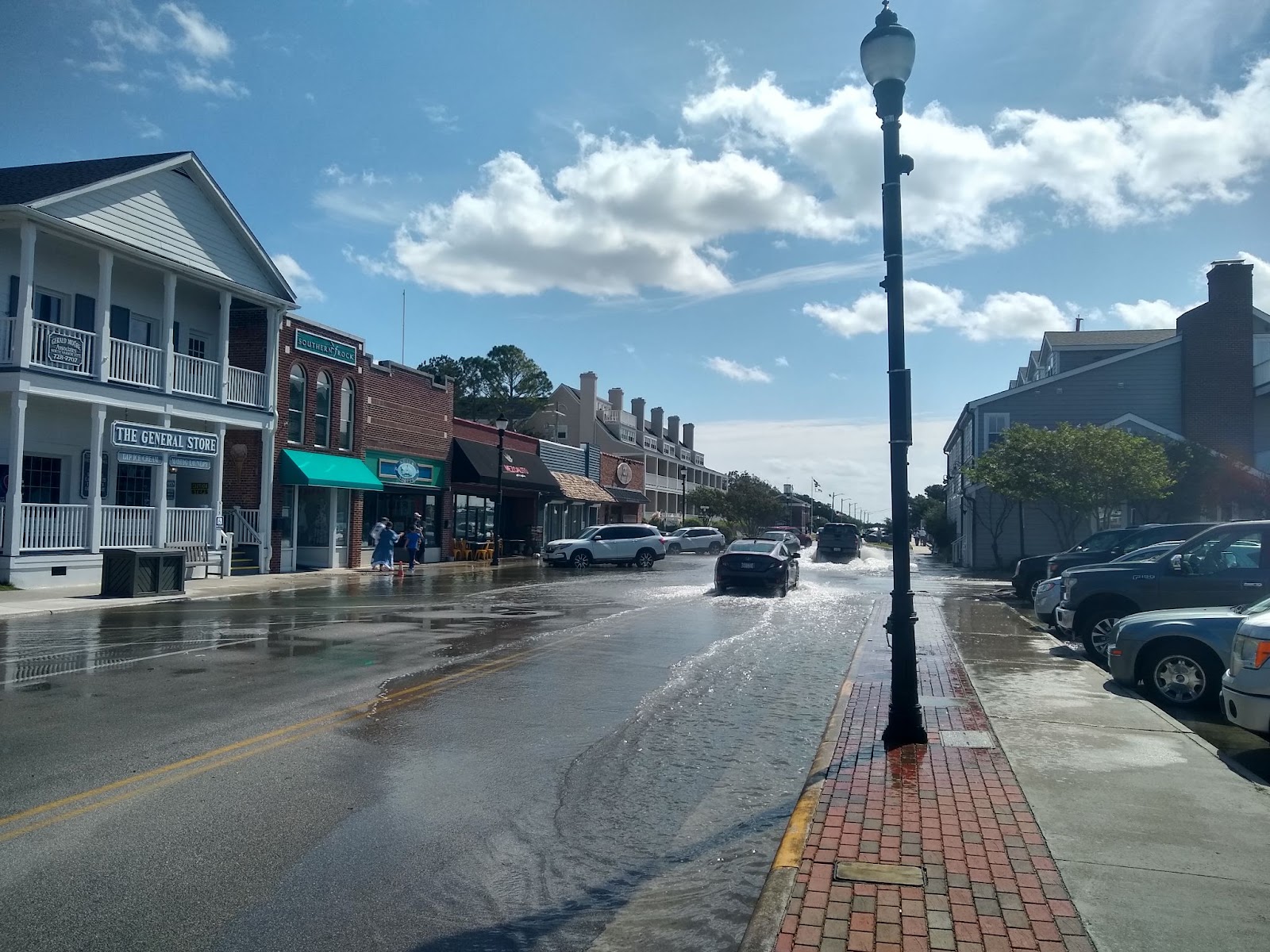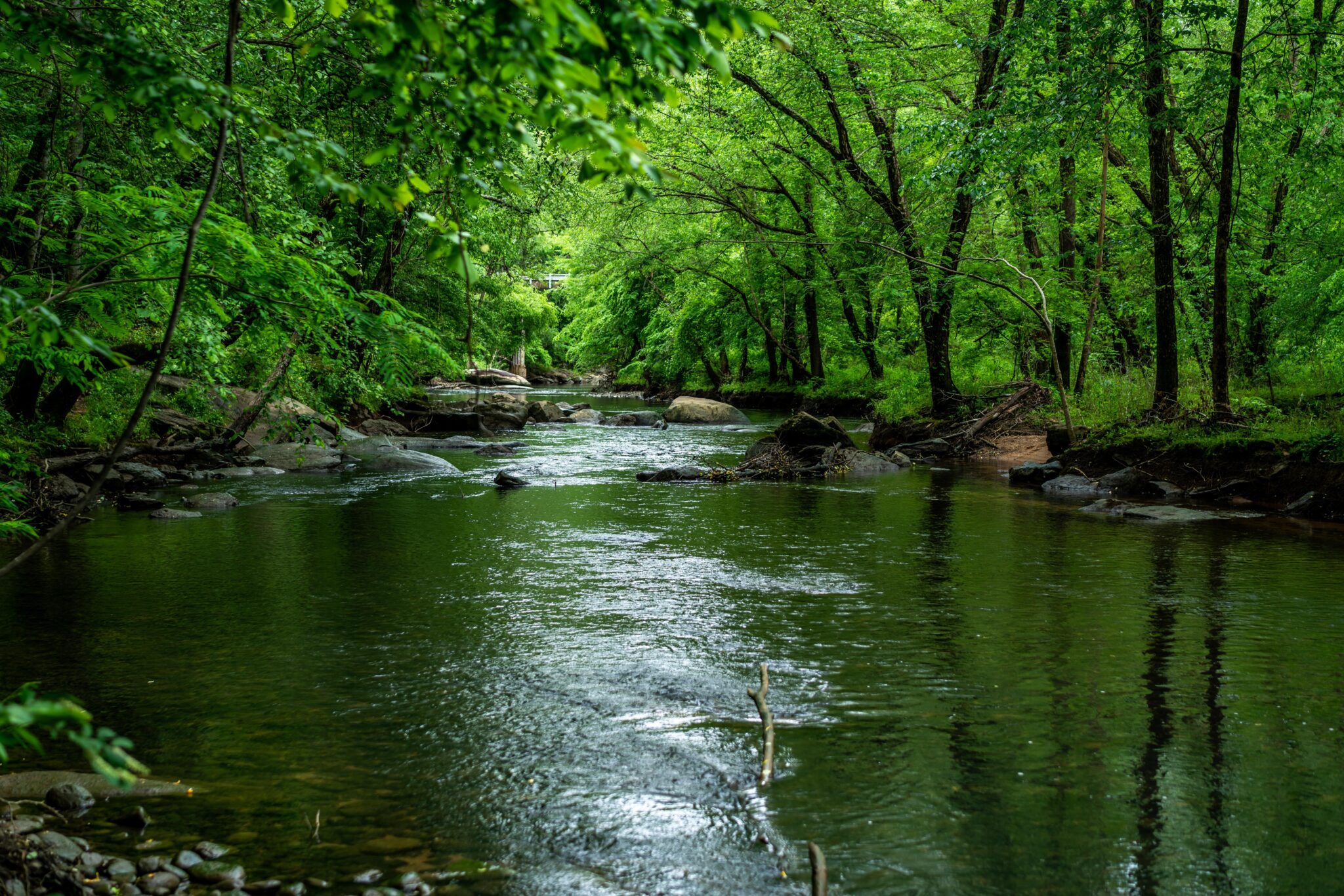NC Aquaculture Projects Earn National Sea Grant Funding
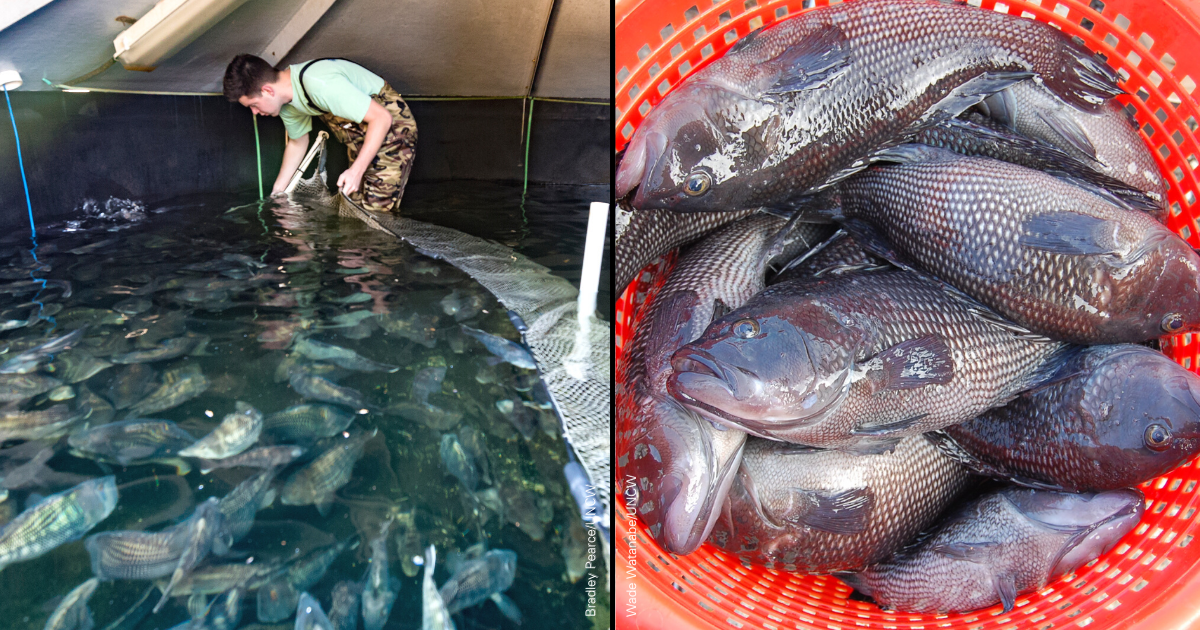
Above: Brooks Sherman (left), a UNCW graduate and former research assistant with the university’s aquaculture program, harvests black sea bass from a recirculating aquaculture system. Market stage black sea bass (right), produced in a recirculating aquaculture system. Download the image.
FOR IMMEDIATE RELEASE
Contacts:
Katie Mosher, kmosher@ncsu.edu
Frank López, fmlopez@ncsu.edu
Two new North Carolina research projects — focusing on black sea bass and shellfish — are among 12 across the nation selected as part of $4.7 million in federal funding to advance understanding of the economics of aquaculture, and to provide businesses with critical market information to encourage sustainable growth.
“The projects represent Sea Grant’s commitment to not only understanding the science behind sustainable aquaculture in the U.S. but also the economics and market possibilities for sustainable aquaculture,” National Sea Grant Director Jonathan Pennock announced. “We think these projects will provide valuable knowledge and new resources to help strengthen and expand the U.S. aquaculture industry.”
Susan White, executive director of North Carolina Sea Grant, agrees. “We are pleased to see these projects move forward to expand finfish and shellfish aquaculture opportunities in our state, and to share our lessons regionally and nationally.”
The new projects in North Carolina are based at the University of North Carolina Wilmington:
- Production Economic Analysis of Market Stage Black Sea Bass in a Recirculating Aquaculture System: Impacts of Improved Fingerling Prices, More Sustainable Feeds, and Faster Growth from Selective Breeding
- Wade Watanabe, UNCW; with Christopher Dumas, Md Shah Alam and Patrick Carroll, UNCW; and Frank López, North Carolina Sea Grant
- Industry partners: Ted M. Davis (Aqua Plantations LLC), Leo Chen (Shogun Japanese Restaurant), Lorenzo Juarez (Sea Products Development LLC), April Harper (Golden Island International), John Graham (Graham Bass Fish Farm)
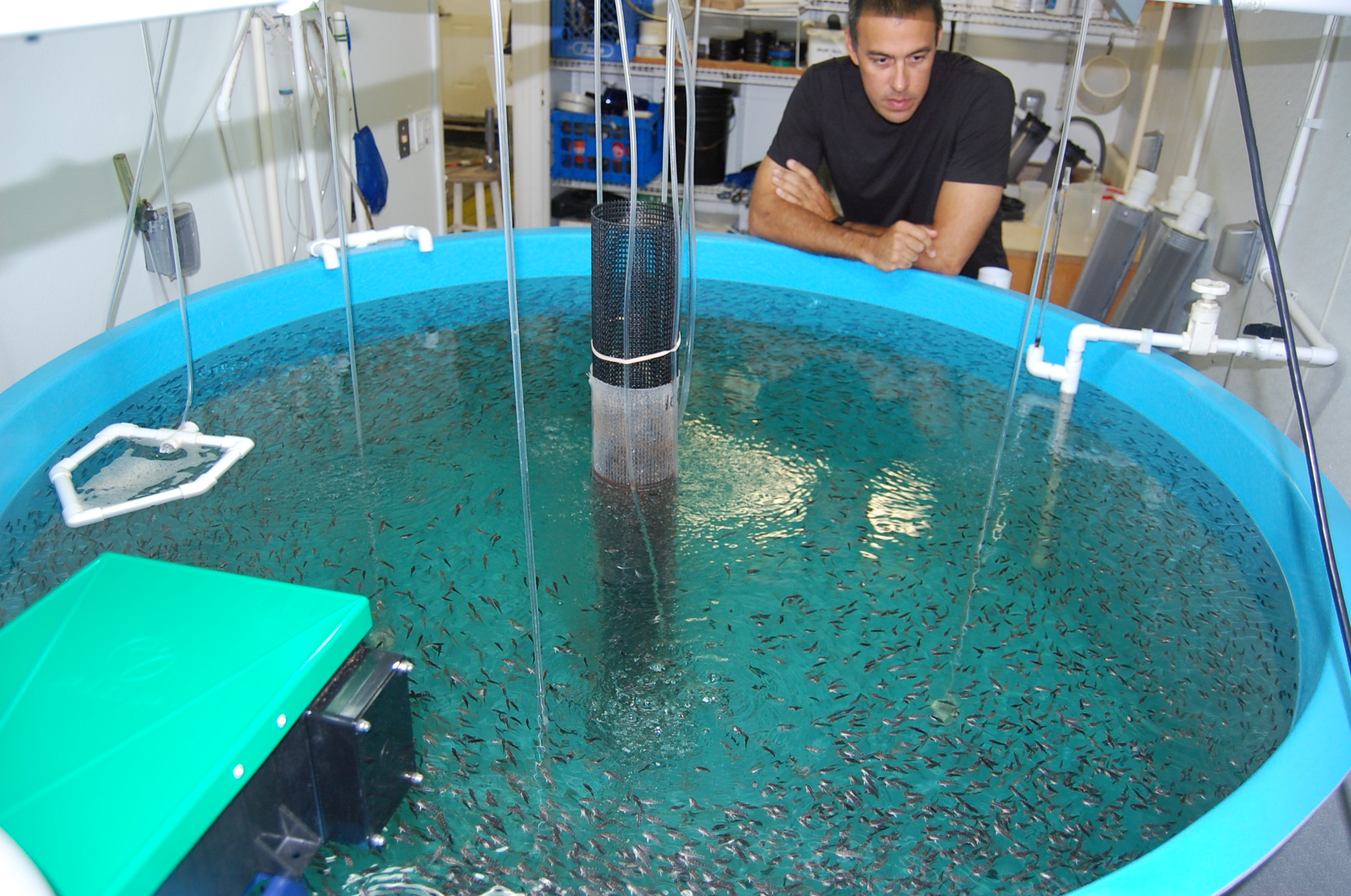
“We will develop an economic model of a commercial land-based recirculating aquaculture facility that can be adapted for varied locations and scales of production,” notes project lead Wade Watanabe.
For example, black sea bass is a species that has high value and high demand, and is grown in coastal North Carolina. The model will provide a spreadsheet to identify how production can be scaled and configured. Various biological and economic parameters are considered to accommodate other geographic areas and species.
Economic analyses will assess the financial effects of recent advances in several areas, including hatchery production of black sea bass fingerlings; sustainable feeds that incorporate cheaper protein sources in replacement of fish meal; alternative grading practices; and higher safe stocking densities. Several of these advances have been demonstrated in earlier Sea Grant-funded applied research, Watanabe adds.
“The potential impacts of faster fish growth resulting from selective breeding over five generations will also be analyzed,” Watanabe explains. “Such information is critical to identifying economic constraints and opportunities, to aid researchers, investors, and policymakers, and to accelerate commercial production of marine finfish in the United States.”
- Developing Farm and Market Tools for Shellfish Mariculture in North Carolina
- Troy Alphin, UNCW; with Martin Posey and Diane Durance from UNCW; Frank López and Eric Herbst of North Carolina Sea Grant
- Partners: N.C. Division of Marine Fisheries, N.C. Coastal Federation, The Nature Conservancy, N.C. Coastal Reserve and National Estuarine Research Reserve
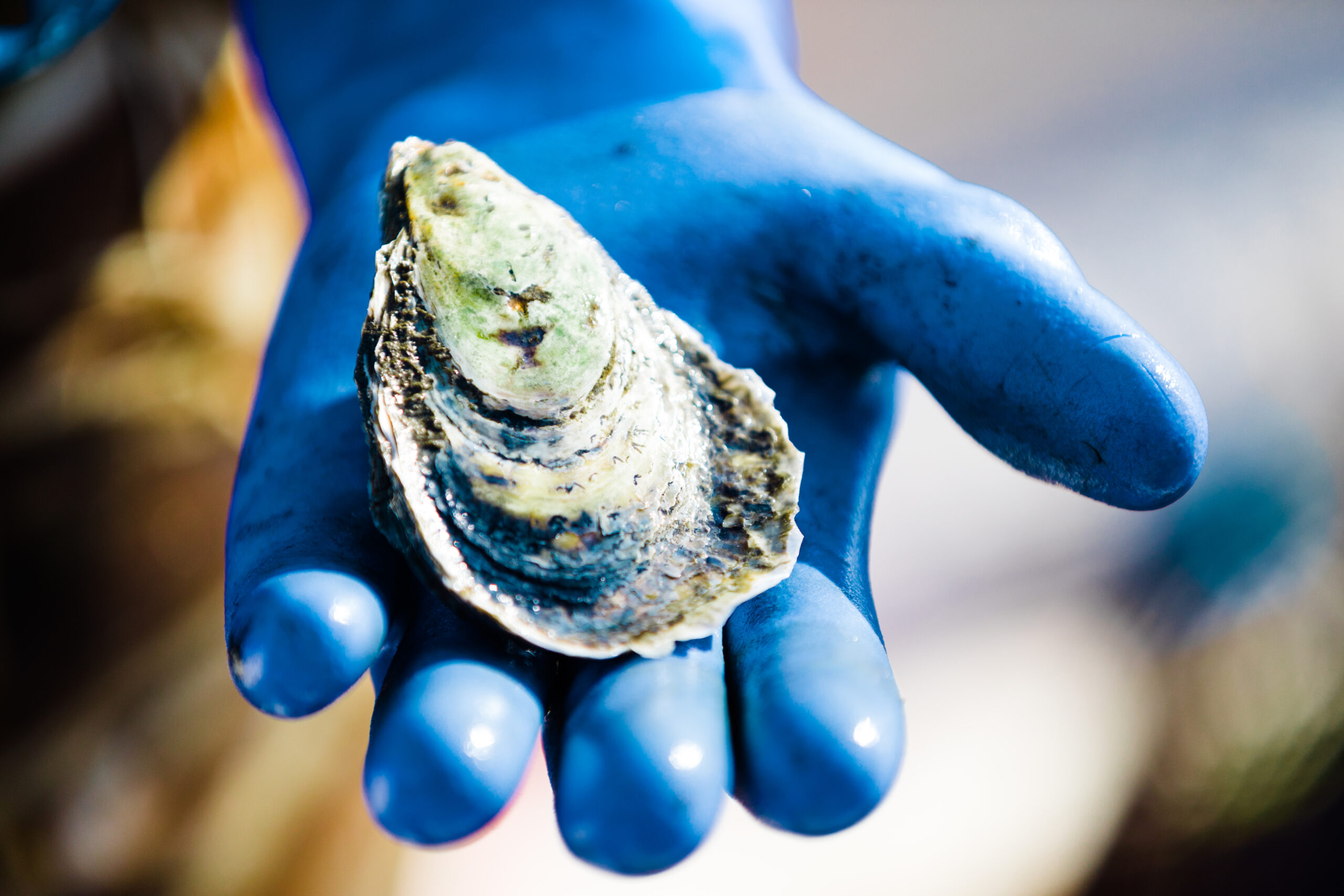
North Carolina has one of the longest and most complex shorelines among East Coast states, with extensive inshore and estuarine areas that provide a wide range of shellfish growing conditions. This diversity had led to gaps in support for shellfish mariculture, explains project lead Troy Alphin.
“Our new project will support North Carolina’s blue economy by providing a business incubator, as well as marketing and economics tools for the shellfish cultivation industry in North Carolina. These tools will help growers address and respond to volatile conditions, uncertain markets and varying demands,” Alphin adds.
The incubator will offer mentorship for new and current farmers, along with the online tools for business management. Remote options will broaden the reach and also meet restrictions related to the current pandemic.
The team includes North Carolina Sea Grant aquaculture extension, the UNCW Center for Innovation and Entrepreneurship, and researchers from the UNCW Center for Marine Science, along with state agencies and community organizations.
##
North Carolina Sea Grant: Your link to research and resources for a healthier coast.
- Categories:

